Text
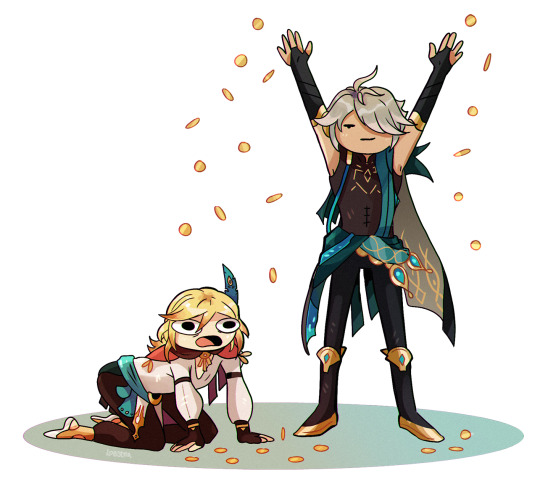
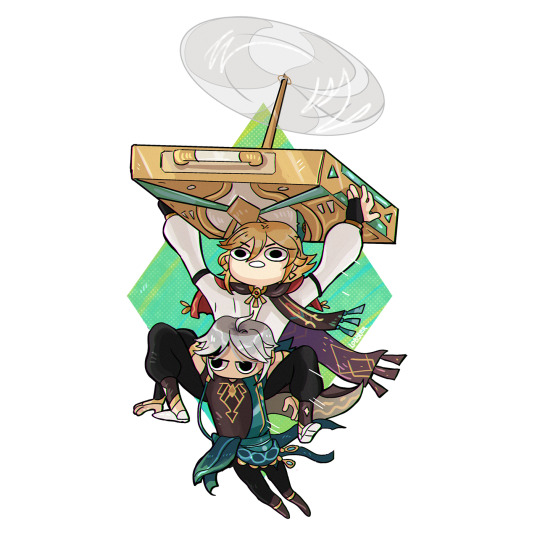
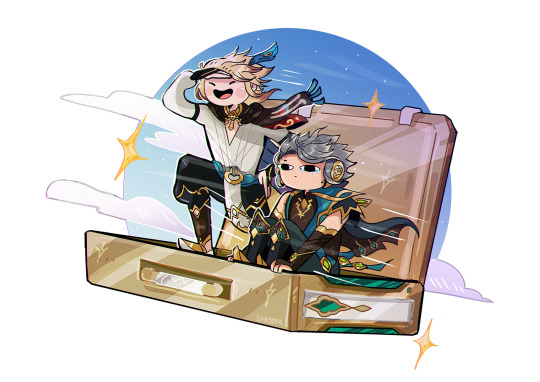
🌱I've seen this all take place with my very own eyes 🏛️
1K notes
·
View notes
Text

mechanic kaveh you will always be famous
2K notes
·
View notes
Text
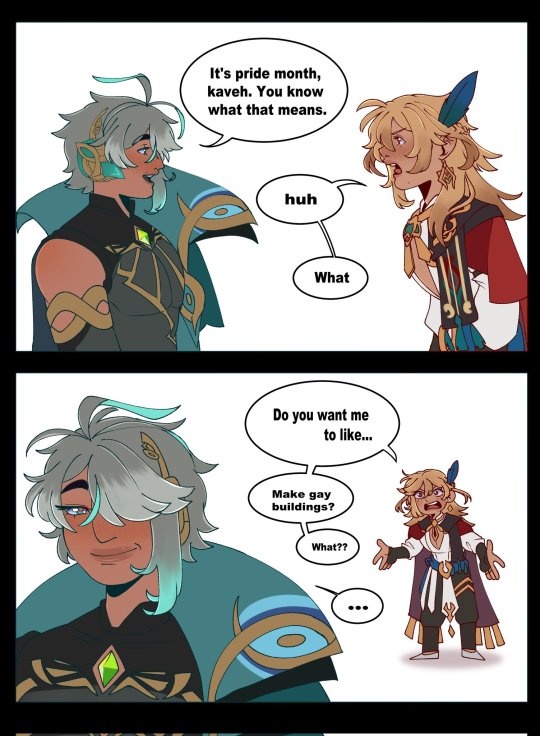
This is old but I want to start uploading art on here again. So I'm going to start with older posts
2K notes
·
View notes
Text
As a Chinese American, it's so jarring to see positive things said towards China/Chinese culture now that RedNote has become trending.
I see all the TikTok's about people moving to RedNote, all the nice things said about Chinese culture and people and I just feel conflicted. Like great, it's becoming less stigmatized for people to enjoy Chinese culture but I had to go through hell to get to see it.
From 2020-2022, I saw my culture being mocked, memed, and ridiculed. I was being called slurs in the lunch hall in high school. I was glared at in stores by middle aged men. MY OWN FRIENDS refused to stick up for me against blatant Sinophobia and even contributed to it.
I still constantly have to BEG some of my friends, some who I've known for OVER A DECADE, to at least acknowledge that things are different from me than they are for them.
I did an entire paper on Sinophobia for one of my classes. I used only academic journals and sources from accredited schools, I pulled from my own experiences, I put my blood, sweat and tears into that paper. It got me an A in that class too. And that still wasn't enough for some people to ACKNOWLEDGE we had a different experience.
And surprisingly, I never experienced any of the previously listed bullshit in my circle on tumblr so thank you.
Edit: I would like to add that I don't condone hate/generalization to other groups. We can point out discrimination without being discriminatory ourselves. BEHAVE🫵
3K notes
·
View notes
Text
Being an artist right now in the US feels like
I want to create the world is burning I want to create they're going to take my healthcare I want to create is war coming I want to create will I be able to get out I want to create where is safe I want to create I'm scared of what's coming I want to create will my community survive I want to create will I survive I want to create I don't know I want to create but surely past artists I want to create wondered this too I want to create so what did they make I want to create when Rome was burning I want to create or did it not matter I want to create what they made I choose to create as long as they still hoped enough to make it?
536 notes
·
View notes
Text
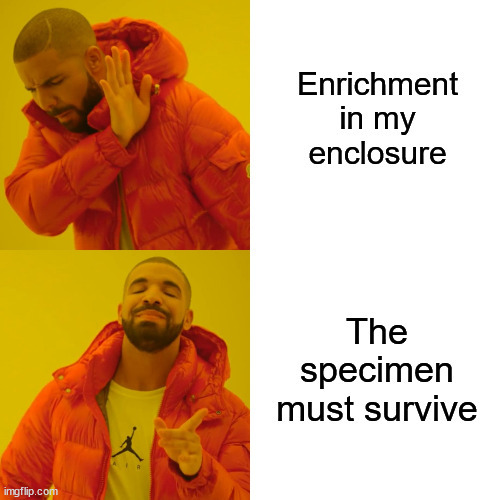
I just watched Arcane and had to get this out of my system
3 notes
·
View notes
Text
The complete dynamic between Al Haitham and Kaveh (an overthinker's analysis)
So this has been bouncing around in my head for the past few months and I'm going to try and condense it into this post to get it out of my system. Basically these are the parallel themes or principles that I've seen between Al Haitham and Kaveh since they released. Now with some pictures.

1. Subjective versus objective
Kaveh is one to value the subjective, hence favoring art which is the expression of the individual even if it's the expression of his client's wishes, and will often overextend his empathy to inanimate objects like Merahk, animals, etc. Al Haitham on the other hand is more focused on objective fact that isn't malleable or sympathetic to subjective whims, he takes comfort in the stability of knowledge and that all it takes is more learning to solve problems, and considers a lot of subjective things like emotions to be 'noisy'.
2. External vs Internal perspective
Kaveh prioritizes the perspectives of others over his own as the roots from which his understanding grows, while Al Haitham prioritizes his own perspective over others'. This is why Kaveh comes off as empathetic and sentimental and maybe even naive on the surface even if he's highly intelligent, he chooses to take the more alturistic route on purpose, just like Al Haitham chooses the individualistic route even if it makes him more outwardly selfish and callous, has the potential to isolate him and has made him more difficult to understand, the important part here is that they're exercising the method that they concluded was best to realize their interests. For Al Haitham society begins with the individual (himself), while for Kaveh it begins with the collective, and so their respective truths align accordingly. While Kaveh prioritizes responsibility, Al Haitham prioritizes his personal boundaries. Also, while Al Haitham perceives external perspectives as 'noise', Kaveh uses them to actively shape his understanding.
3. Done versus perfect
Kaveh approaches the world as he'd like it to be, based on its potential, while Al Haitham approaches the world as it is. So Kaveh tends to lean into perfectionism and ideals while Al Haitham leans into efficiency and solutions. This is why Kaveh tends to overextend himself, not only does he think that his projects should be the best they could possibly be, but he also thinks the same about himself, holding himself to perfectionist standards. Meanwhile Al Haitham comes off as doing the bare minimum, sometimes even less, because he believes that as long as something meets the 'done' requirements, any extra effort wastes precious energy, time and resources.
4. Different kinds of evolution (adapting/growing versus navigating/surviving)
I think this is where the most contention happens between them, both Al Haitham and Kaveh were faced with circumstances that forced them to adapt (no family and barely any support at a young age, being unique thinkers who are difficult to understand by the average person).
They also both, early on, chose to carve out unique paths for themselves, with belonging being the trade-off. However, while Al Haitham leaned into maintaining himself as he was, finding a niche in which he was comfortable, Kaveh tried to adapt and conform as much as he could while maintaining his core. Think of it like compromising as much as you can to fit in versus refusing to change in exchange for fitting in.
Al Haitham thus sees Kaveh giving away something precious in return for acceptance from people who don't even understand or value him, while Kaveh sees Al Haitham as simply refusing to try to reach an understanding and so find the support and connection he needs. Neither of them is completely correct about the other, and this is what created the circumstances for their fallout. Because they were shaped mainly by their circumstances and did what they had to do to make it out of their difficult circumstances with their 'selves' intact. They evolved differently and thus have very different interpretations of resilience and growth.

5. Openness vs reservedness
This is a small section that ties into the previous one, but basically Kaveh wears his heart on his sleeve, often having a hard time keeping secrets, while Al Haitham is more protective of his, even going so far as avoiding vulnerability by deflecting when people try to frame the conversation in a way that he needs to be forthcoming with personal details. Don't get me wrong, they both struggle with vulnerability, but Kaveh wants to be understood, almost desperately, while Al Haitham wants to be as invisible as possible and would rather not be percieved.
6. Study vs Mastery
This is kind of a minor one but the way they process information is interesting, with Kaveh leaning more into practice and mastery of a craft while Al Haitham seems to lean more into the accumulation in knowledge and closing any gaps in his database.
7. Structural thinking vs dynamic thinking
This is a little difficult to explain and gets into headcanon territory but basically Al Haitham prefers to break things down into components and then work through the pieces systematically while Kaveh likes jumping from point to point, like traversing a flexible web of ideas or connecting stray dots. It's why Al Haitham is better at fact checking, prefers consistency and is resistant to wild ideas, while Kaveh is more creative and prone to unique and far reaching ideas. It's also why their conversations usually involve Kaveh coming off as an overthinker while Al Haitham grounds his train of thought. Imo they're both overthinkers Al Haitham is just systematic and quiet about it.
8. Integration vs compartmentalization
Kaveh values integrating of knowledge, experiences and perspectives while Al Haitham values 'quarantining' his, keeping it stable and uncontaminated. It's what makes their dynamic work but also where their opposing philosophies meet for example with the solutions they provide to the same problems and the burdens they choose to carry.
9. The past vs the future
This is an overarching theme in Sumeru but dreams, memories, and the connections between them as well as how shared experiences reinforce them are big themes even with these two. Kaveh wants to be very future oriented based on his dialogue but you can also see the past weighing him down, heavily influencing his decisions, while Al Haitham is very pragmatic and averse to thinking too big about the future, wanting a peaceful and free life, but even this was sparked by his grandmother's wish, who in a way set him free from carrying through on a dream tied to external expectations or his family's legacy. Too add, he is close to Kaveh and the gang whether he likes it or not precisely because of their shared past, Kaveh is his memory, and he ends up living in their 'dream house', he is still affected by those thread like connections that come with interacting with others and living in community.
10. Risk vs certainty
Another small one but Kaveh is more likely to make a decision based on the potential outcome than what is right in front of him like Al Haitham. This also ties back into seeing things for their potential versus how they are, with Kaveh preferring to work based on the ideal potential of something versus the factual outcome that Al Haitham prefers.
11. Hope(dreams) vs evidence(memory)
This one is speculation and might also be another reason why Kaveh leans into more speculative territory while Al Haitham prefers fact. Kaveh probably only had his dream to hold onto at his lowest point while for Al Haitham structure and evidence have always been available to him (his grandmother was a steady presence who reassured him on being himself while Kaveh was abandoned with little beyond the guilt-laced memories of his father). So for example Kaveh's projects rely on him having and holding onto a vision that he eventually fulfills, while Al Haitham documents what's already been done and established as the Scribe. This ties into Kaveh seeing himself and the world based on potential while Al Haitham prefers seeing things as they are. However Al Haitham ends up respecting Kaveh because he always follows through on his dreams while Kaveh begrudgingly accepts that Al Haitham is far more consistent due to working within realistic boundaries.

My Conclusions
1. They're both self contradictory
The reason people find the two to be confusing is because their characterization is intentionally misleading, in line with the theme of Sumeru where characters turn out to be more than their tropes once you dig a little deeper. And this is exemplified by how they also misunderstand each other when they were younger and inexperienced, hence their fallout.
A really good example is how Al Haitham believes that it's better for people to be individuals (find their own path to belonging with their sense of self intact) rather than conform or force themselves into systems that won't accomodate or appreciate them, however he just happens to fit neatly into the structures of the Akademiya, he's very compatible with how the Akademiya works, something that's not only rare but inaccessible to most people of Sumeru.
Kaveh on the other hand believes that systems should change to accommodate everyone, and that people should try to meet their potential despite the obstacles, and yet is in the one nation where his dream, his ideal, becomes an impossible task, materially but also systemically. His talents aren't appreciated by the institution that's in charge, even after proving it (and above and beyond that), and after years of putting in the extra effort to appeal to the Akademiya and pull his Darshan out of the dark.
The point of their dynamic is not that either one or both are right, it's that they grow even more through their connection and understanding the other's perspective, which is why Al Haitham takes Kaveh in and indulges his whims somewhat, or in the archon quest when he offers himself up as hostage, even if he knows it'll add more 'noise' to his life, something he explicitly avoided as part of his purpose, and why Kaveh didn't accept to continue the utopian-esque research of Sachin even if it would give him a chance to continue chasing his ideals. They were mirroring each other in action.
2. How they mirror each other
Basically they are both unique to the world, and neglected by the world (in different ways but especially in terms of understanding), and as such needed an equally unique person to help them further deepen their understanding of themselves and their world (inner and external), they also both share many core experiences and thus perspectives on a lot because of their time together at the Akademiya, and as such, their relationship is the thing with the most potential for them to both grow/evolve further. They not only understand each others quirks, routines, and flaws, but also gaps in knowledge and experiences, which is invaluable for a scholar.
So with Al Haitham, Kaveh is probably the only person who is truly empathetic towards him, who can correctly deduce on the roots of his behavior, and also anticipate his needs, and thus Kaveh is the only one who can, for example, give meaningful support and company, as well as a controlled environment to learn about others without conventional and tedious socializing. Kaveh is the reason Al Haitham got leftovers even though he forgot there was a meetup, and the reason Al Haitham now has friends to get drinks and play cards with.
With Kaveh, Al Haitham's self reliance and individualism gives him no room to empathize beyond what's necessary, and so Kaveh is forced to just exist and look inward to his own wants and needs, and then voice them, instead of distracting himself with the needs and wants of the people and institutions around him. He's also a stable anchor for Kaveh, both as a consistent and stable presence in his life, as well as the grounded voice to balance out his dreaming. Al Haitham makes space in their shared home for Kaveh to rest and be himself beyond his burdens.
3. Why Nahida prefers Kaveh's perspective but Al Haitham becomes Grand Sage
Honestly I don't know for sure. My speculation is that Nahida and Kaveh both have great potential for growth as well as the desire to fulfill their dreams, they also share the desire to understand the perspectives of others, exercise empathy that is. However this doesn't apply to when the Akademiya needed a new Grand Sage, a period of instability that needed discernment, efficiency and results, after which it can go back to dreaming about the future.
If you made it this far thank you for reading!

37 notes
·
View notes
Text
I read this fic it's as beautiful as this drawing. The way Al Haitham is the one down bad in all universes and Kaveh falls last but it's obvious from the moon. The way both Haithams were so ready to let Kaveh go for his sake and happiness. Even though it hurts them that he's leaving. The way Al Haitham is so smart and perceptive in all universes. The way Al Haitham, infamous for being selfish is so selfless when it comes to Kaveh. IT'S REQUITED KAVEH YOU FOOL.

{🩷 +5 𝒂𝒇𝒇𝒆𝒄𝒕𝒊𝒐𝒏 }
Inspired by: To Dream in Shades of Green - Intensely_Reading
568 notes
·
View notes
Text
It could be a bunch of things for example a LOT of autistics have trauma and Zuko's response to trauma may be relatable. But also he has deadpan reactions to other's emotions, goes on a 3 year journey to please his dad, can't tell when Azula is lying, navigates the formal situation of the army better than normal friendships, reacts poorly to a change in identity, has a complicated relationship with morality and ethics, and will sometimes act asocial. Again, this may be the ptsd but it also overlaps with a lot of neurodivergent experiences.
Why do people argue that Zuko is coded as autistic? I’m not opposed to the idea, I just don’t see what signs people see.
101 notes
·
View notes
Text
*clasps hands together* I've only read 60 chapters of Heaven Official's but my headcannon is Hua Cheng is a glimpse into Morax just as he was getting to know Ghuizong.
8 notes
·
View notes
Text
Kaeya trying to be a good uncle/big brother(the only way he knows) by teaching Klee how to be sneaky like him but Klee being too sweet to internalize any of his shadiness.
19 notes
·
View notes
Photo
I'm seeing a pattern emerge in the fictional men i latch onto

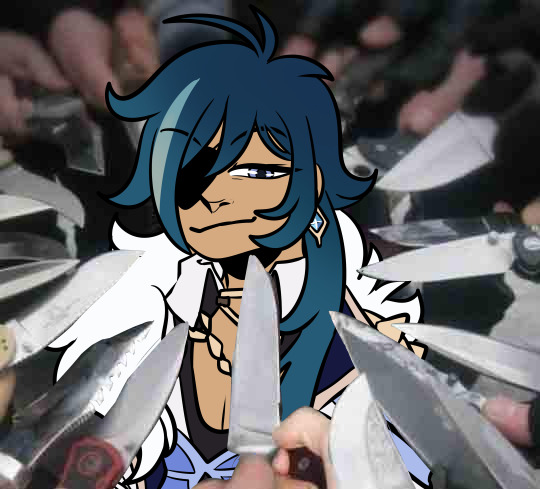
smug bastard vibes
1K notes
·
View notes
Text
Dendro Archon: Okay, fair enough, but Barbatos is 2600 years old. I still have the hope to live that long.
Pyro Archon: That's because to challenge Barbatos, you need to go to Mondstadt, and to get to Mondstadt you need to get to Liyue. That means you'll get through Morax.
Dendro Archon: Barbatos' challengers didn't make it after Liyue, did they?
Hydro Archon: No, they didn't.
-
[Full Series Link]
211 notes
·
View notes
Text
Xiao: *Coughs violently*
MC: Don't die, please...
Xiao: Don't tell me what to do.
296 notes
·
View notes
Text
Zhongli when that ignorant archeologist was arguing with him about Morax’s past:
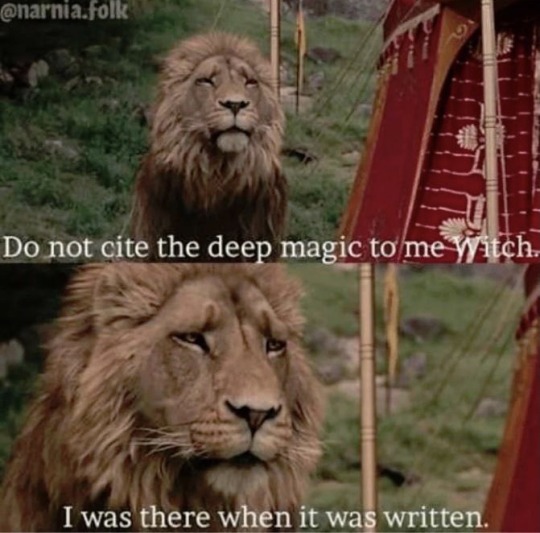
2K notes
·
View notes
Text

The Bee’s Knees is a collection of songs about witches as well as a story about the witches who play them.
START READING ON WEBTOON


SUPPORT THE COMIC ON PATREON
21 notes
·
View notes
